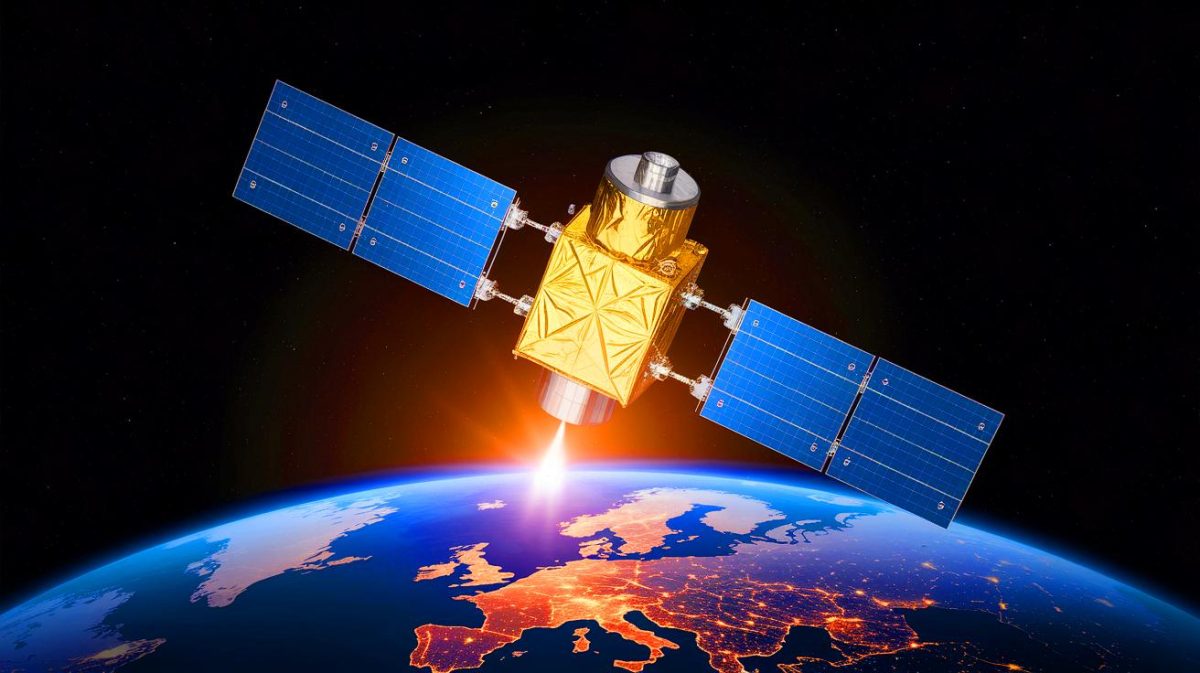| IN A NUTSHELL |
|
The recent announcement of China’s quantum satellite network has sent ripples through the global technology and defense communities. With its claim of an unhackable communication system spanning 7,950 miles between Beijing and South Africa, China seems poised to revolutionize secure communications. This ambitious project aims to establish a worldwide quantum network by 2027, setting a new benchmark in communication security. As the world watches, the implications for global cybersecurity and geopolitical dynamics are profound.
China’s Quantum Leap in Communication
China’s latest technological feat involves the deployment of a quantum communication link between Beijing and South Africa, marking a significant milestone in secure transmission technology. This breakthrough relies on a quantum satellite that facilitates a communication network impervious to traditional hacking methods. Quantum Key Distribution (QKD) is at the heart of this system, leveraging the fundamental principles of quantum mechanics to ensure the integrity of data being transmitted. By making it impossible to intercept transmissions without detection, QKD offers an unparalleled level of security.
China’s goal of operationalizing a global quantum network by 2027 underlines its commitment to leading in strategic communication technologies, particularly in defense and finance. The successful tests of this system, confirmed by Yin Juan, a prominent physicist involved in the project, highlight China’s determination to push the boundaries of what is technologically possible. This achievement not only extends China’s previous success in linking China and Austria across 4,720 miles but also sets a new precedent for quantum communications in the Southern Hemisphere.
Worldwide Quantum Network by 2027
China’s ambition to expand this quantum network across BRICS nations, including Brazil, Russia, India, and South Africa, reflects its vision of a globally interconnected secure communication system. Despite geopolitical tensions, China calls for international cooperation in developing this technology, emphasizing its potential to enhance global cybersecurity. The establishment of terrestrial quantum links with Russia already indicates progress towards this expansive vision.
The implications of such a network are far-reaching. A global quantum communication network could reshape international relations, as countries may need to adapt to a new landscape of secure communications. The potential for such a network to safeguard sensitive information across borders is immense, offering a new layer of security in an increasingly digital world. However, the challenges of implementing such a network on a global scale remain significant, requiring collaboration and innovation across multiple sectors and nations.
China’s Space Program: A Growing Power
China’s rapid advancements in its space program have been nothing short of remarkable. The nation has significantly accelerated its military space endeavors, with approximately 1,000 satellites in operation as of 2024. Of these, 360 are dedicated to intelligence, surveillance, and reconnaissance, showcasing China’s commitment to strengthening its defense capabilities. The recent launch of the TJS-11 satellite, likely intended for military communications, further underscores this trend.
The deployment of over 700 Chinese satellites, with 245 dedicated to military purposes, highlights China’s strategic focus on space as a domain of military and technological superiority. With plans to launch about 100 space missions in 2025, including potential military satellites, China is clearly positioning itself as a formidable force in space exploration and security. This expansion not only reflects China’s technological advancements but also its geopolitical aspirations to assert influence in space.
Global Efforts in Quantum Satellite Networks
While China leads in quantum satellite networks, other global players are not far behind. The European Union’s EuroQCI initiative aims to establish a secure quantum communication infrastructure across the EU, integrating satellites and terrestrial networks. This project, supported by the IRIS2 program, seeks to enhance the cybersecurity of European institutions.
Similarly, TeQuantS, backed by Thales Alenia Space and the European Space Agency, is developing a satellite-based quantum Internet. This initiative plans to establish satellite and optical ground stations by 2026 for long-distance, quantum-encrypted communications. In North America, the HyperSpace project explores transatlantic quantum communication using entangled photons, aiming to link Canada and Europe securely. Meanwhile, the QKD-GEO project, a collaboration between Thales and Hispasat, envisions a geostationary satellite-based encryption system by 2029.
These efforts illustrate a global race towards quantum communication, with nations striving to secure technological sovereignty and enhance cybersecurity. The potential of quantum networks to transform secure communications is driving innovation and competition worldwide, prompting countries to invest heavily in this emerging field.
As nations embark on the quest for quantum supremacy, the stakes are higher than ever. China’s advancements in quantum satellite networks have set a high bar, challenging other countries to innovate and compete in this rapidly evolving arena. With significant investments in research and development, the future of global communication security is poised for transformative change. How will these developments impact the balance of power in international relations, and what new challenges will arise as nations strive for quantum dominance?
Did you like it? 4.5/5 (21)






Wow, China’s really pushing the envelope on tech! 🚀 But are these claims of ‘unhackable’ really possible?
Sounds like science fiction! Can the U.S. really not catch up? 🤔
Isn’t this dangerous? What if the tech gets into the wrong hands? 😬
Thanks for the article. I had no idea quantum communication was this advanced.
Why is South Africa a key player in this project? 🤔
So, does this mean my messages are finally private? 😂
Unhackable? I’ve heard that before… 🙄
China’s not joking around. This tech could change everything!
Isn’t the US working on something similar? What happened to their projects?